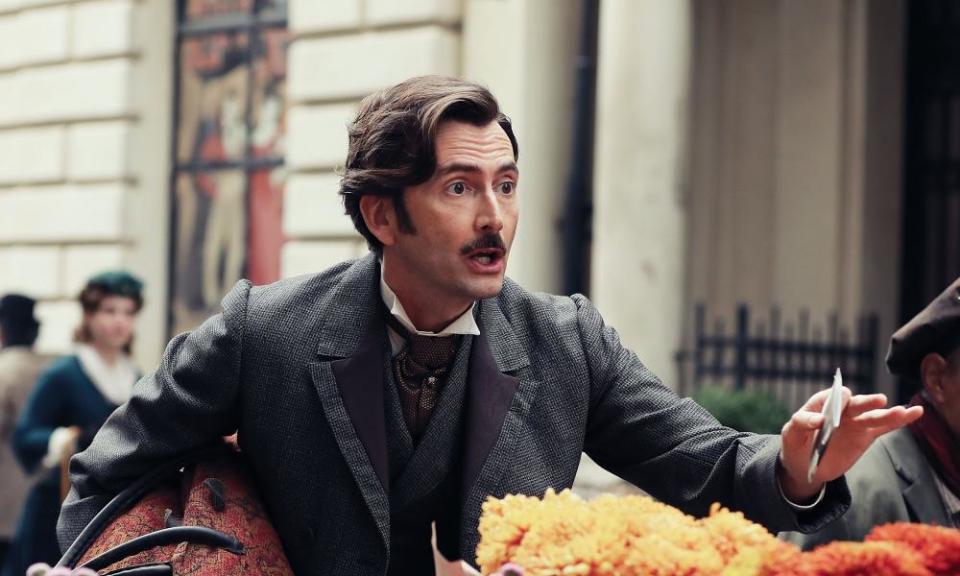David Tennant questions Tory focus on ‘Britishness’ of TV shows

Actor asks whether idea means ‘made in Britain’ – or insisting on a ‘certain political viewpoint’
David Tennant has criticised the suggestion by the former media minister John Whittingdale that public service broadcasters should make “distinctly British” programmes.
In September, Whittingdale announced government plans to force the BBC, ITV and Channel 4 to make more programmes that celebrate British values.
Ministers plan to include the objective in new UK media laws to be drawn up next year. While major global players including Netflix, Amazon and Disney have invested in British content, there is concern that shows are too generic because they are made for an international audience, without reflecting true “Britishness”.
Whittingdale pointed to Only Fools and Horses, Fleabag and Doctor Who as examples of distinctly British creations. But Tennant, who played the Doctor between 2005 and 2010, criticised this.
He said: “Is there some inherent criticism within this plea for more Britishness?” he said in the Radio Times. “Did Britishness mean ‘made in Britain’ or programmes that have a certain political viewpoint?”
The Scottish actor questioned whether the government was actually pleading for artists to be more sympathetic towards it. “Why would the government feel they need more sympathy directed towards them? Perhaps that’s a question they should ask themselves, rather than trying to blame it on the television industry,” he said.
Tennant plays Phileas Fogg in the upcoming BBC production of Jules Verne’s 1873 novel, Around the World in Eighty Days. In the story, Fogg and his newly appointed French valet attempt to circumnavigate the world on a wager of £20,000.
Verne wrote the novel as France reeled from its military defeat by Prussia and a failed working-class revolution in Paris. His protagonist, a wealthy Victorian gentleman with a stiff upper lip – previously played by David Niven and Steve Coogan among others – has been interpreted as an attempt by the author to explain the zenith of Empire and the invulnerability of upper-class white men.
Tennant’s Fogg is a helpless and befuddled has-been, who at one point relies on the help of a black man and a woman. “In many ways Phileas Fogg represents everything that’s alarming and peculiar about that old sense of British Empire,” Tennant said. “Potentially, it’s a story about an England that should elicit very little sympathy.”
Verne, he added, “chose to make Phileas Fogg a particularly stuffy Englishman. We’re showing a different type of stuffy Englishman. He’s very damaged, everything is a trauma for him.”
Filming for the series, written by the Life on Mars co-creator Ashley Pharoah, was abandoned in March 2020 due to the pandemic, and later completed under restrictions. “It was quite alarming. You didn’t really know how dangerous it would be to be on set with 100 people,” Tennant said.
The actor recently won an Emmy for his portrayal of the serial killer Dennis Nilsen in ITV’s Des, which also won six National Television awards. Tennant said the production team had not wanted to tell a titillating and sensationalist story, but it was important to continue to tell stories “about how badly it can go, and how dysfunctional some of our human brethren can become”.
The initiative to make “British” programmes was announced in a speech due to be given by Oliver Dowden before he was replaced as the culture secretary by Nadine Dorries.

 Yahoo Finance
Yahoo Finance 